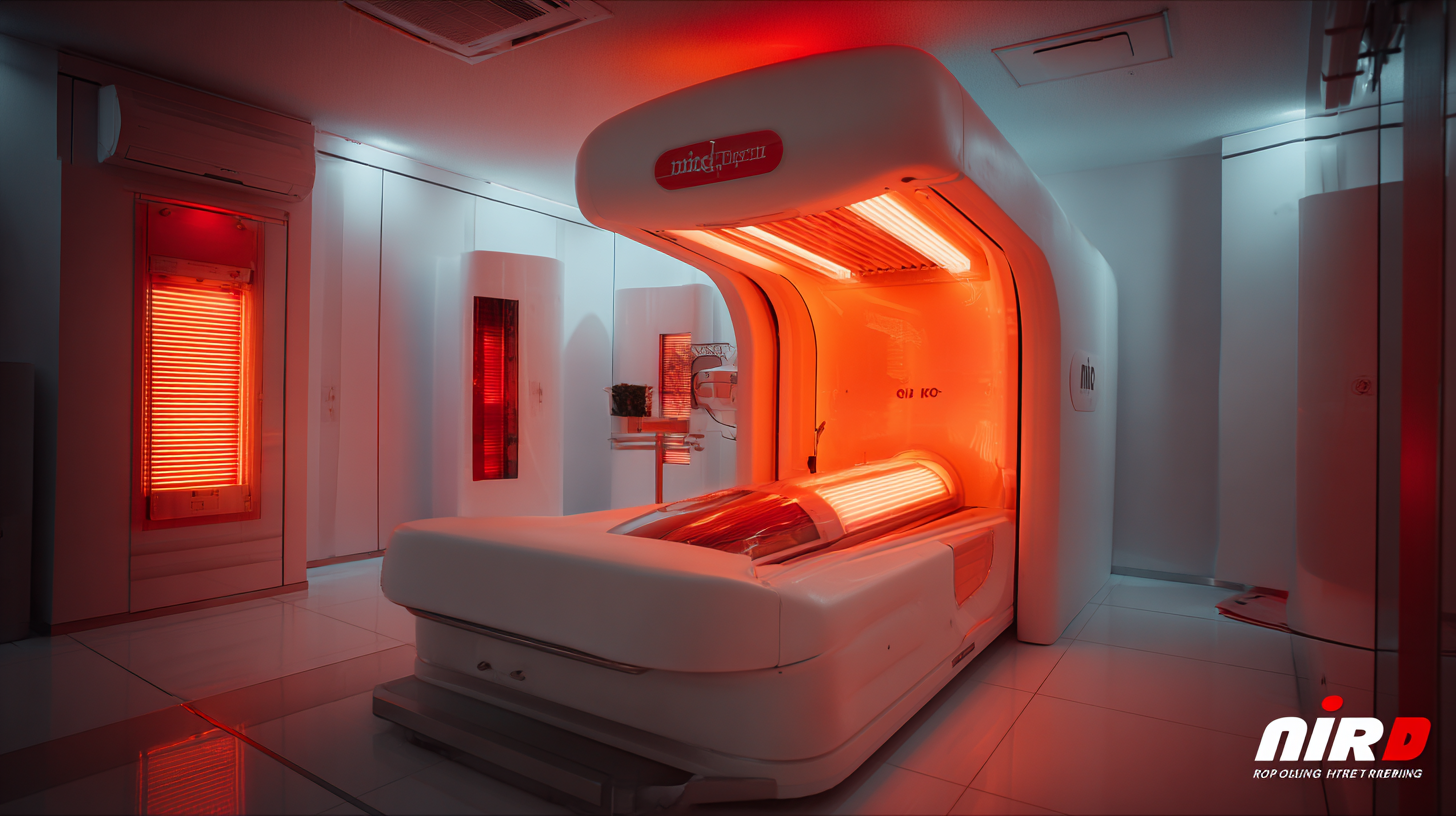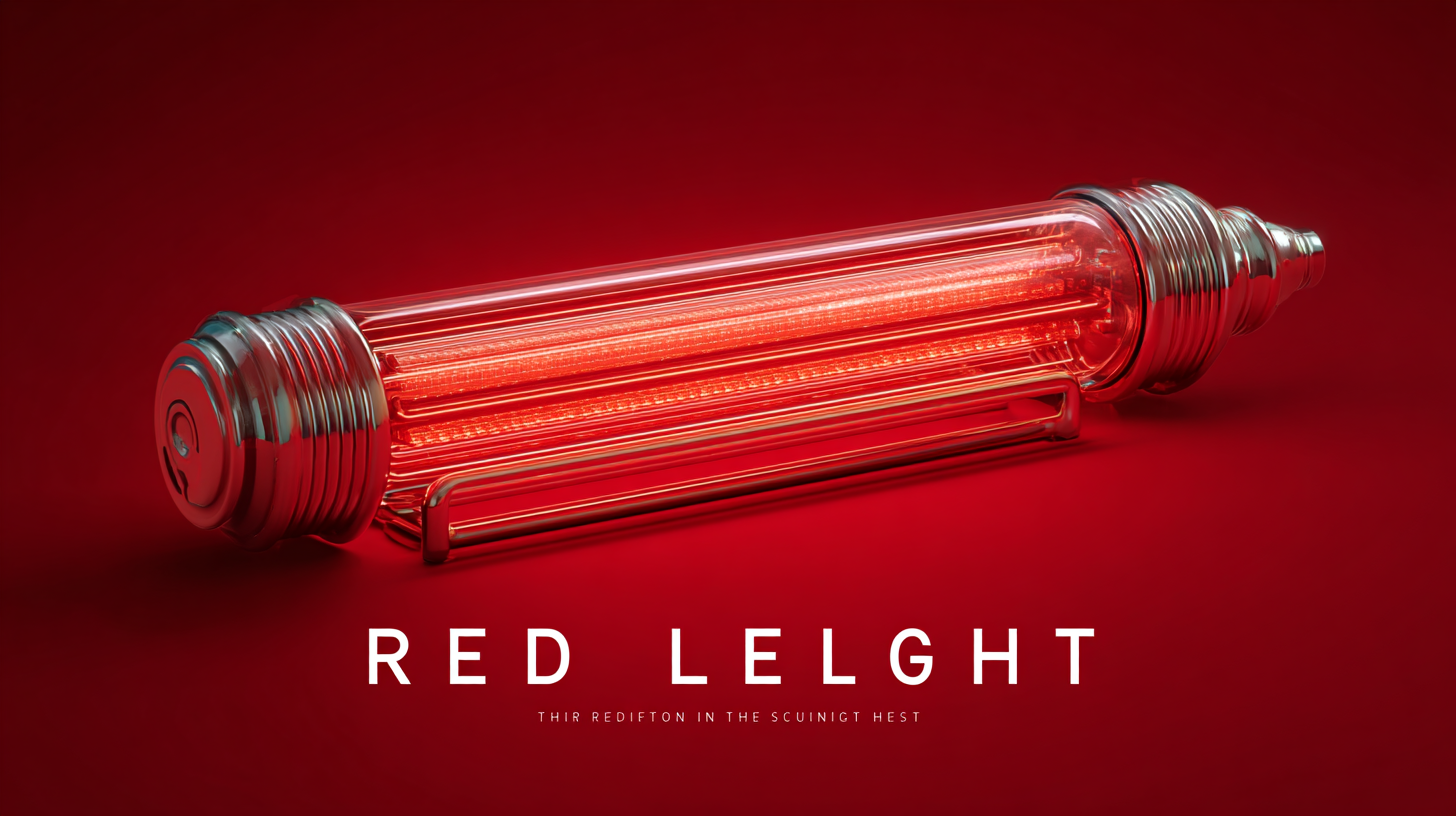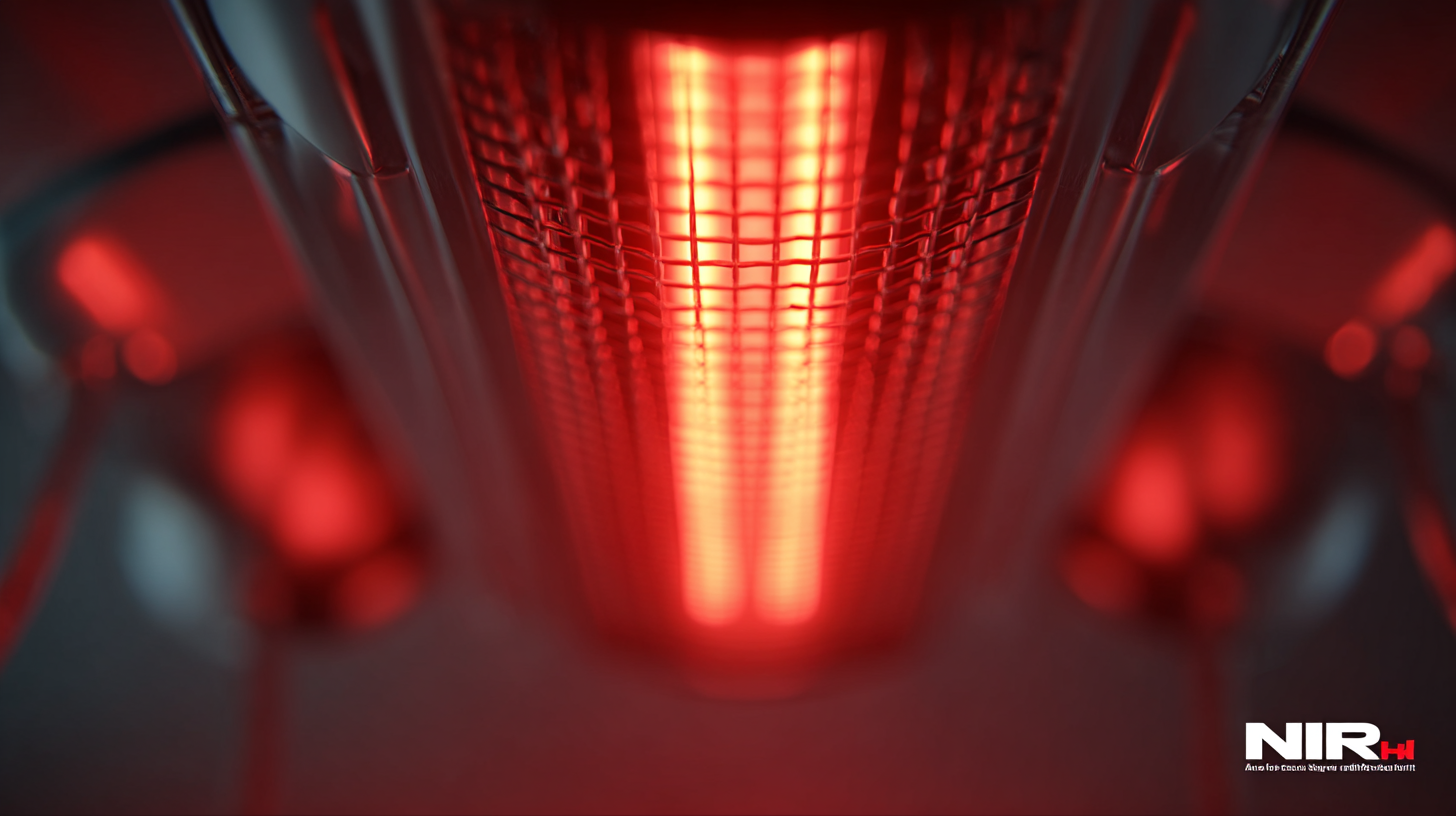The Future of Red Light Therapy Innovations for Global Buyers
As the interest in innovative wellness solutions continues to rise, Nir Red Light Therapy stands at the forefront of this revolution, offering a myriad of applications that cater to diverse industry needs. From skincare to physical rehabilitation, the advancements in red light therapy technology are transforming how global users approach health and beauty. In this blog, we will delve into real-world case studies that highlight the efficacy of Nir Red Light Therapy across various sectors, demonstrating its potential to enhance both consumer experiences and treatment outcomes. Additionally, we will provide a "how-to" guide for buyers looking to navigate this burgeoning market, ensuring they make informed decisions when investing in these cutting-edge products. Join us as we explore the future of red light therapy and its promising innovations tailored for today's global demands.
Emerging Trends in Red Light Therapy Technologies and Their Global Impact
As red light therapy continues to gain traction worldwide, emerging trends in its technology are setting the stage for revolutionary advancements in health and wellness. One significant trend is the integration of portable devices, which enable individuals to access the benefits of red light therapy in the comfort of their own homes. These compact gadgets utilize advanced LED technology to deliver targeted treatment for various conditions, ranging from skin rejuvenation to pain relief, making therapy more accessible to a broader audience.
Additionally, developments in artificial intelligence and personalized treatment protocols are enhancing the effectiveness of red light therapy. By incorporating AI, devices can analyze users' specific health needs and conditions, adjusting the light spectrum and duration for optimal results. This tailored approach not only improves the therapeutic experience but also encourages higher engagement from users, as they can track their progress and receive customized care. As these innovations unfold, the global impact will likely transform how consumers view and utilize red light therapy, establishing it as a mainstream option in their wellness routines.
The Future of Red Light Therapy Innovations
This bar chart illustrates the global market demand for red light therapy technologies from 2018 to 2023. It demonstrates a growing trend in the adoption and investment in red light therapy, indicating significant innovations and increasing consumer interest.
Key Innovations in Red Light Devices: What Buyers Need to Know
As the demand for red light therapy continues to rise, staying informed about the latest innovations is key for global buyers. Modern red light devices are now incorporating advanced technology to enhance their effectiveness and user experience. Features like customizable wavelengths, which target specific skin concerns, and built-in timers for optimized treatment durations are becoming more common. Buyers should look for devices that offer flexibility and personalization to maximize their therapeutic results.
Tips for selecting the right red light therapy device include checking for FDA approval, as this assures safety and efficacy. Additionally, consider the size and portability of the device—compact models are ideal for travel but may have limited coverage. Look for devices with adjustable intensity settings to cater to different skin types and treatment goals. Finally, reading customer reviews can provide insights into the effectiveness and reliability of the device before making a purchase.
By understanding these key innovations in red light therapy, buyers can make informed decisions that meet their specific needs while potentially unlocking significant health benefits.
The Future of Red Light Therapy Innovations for Global Buyers
| Innovation |
Description |
Benefits |
Price Range |
Target Users |
| Portable Red Light Devices |
Compact, travel-friendly devices for on-the-go therapy |
Convenience and accessibility for daily use |
$50 - $150 |
Fitness enthusiasts, travelers |
| Multi-Spectrum Devices |
Devices that combine red and near-infrared light for enhanced results |
Improved cellular repair and recovery |
$200 - $500 |
Healthcare providers, wellness centers |
| Wearable Red Light Therapy |
Devices worn directly on the body targeting specific areas |
Local pain relief and muscle recovery |
$100 - $300 |
Athletes, individuals with chronic pain |
| Smart Red Light Solutions |
Internet-connected devices with app control and tracking |
User data tracking and programmable therapy sessions |
$300 - $700 |
Tech-savvy consumers, health monitoring enthusiasts |
| Infrared Therapy Beds |
Full-body therapy beds for whole-body exposure |
Comprehensive relaxation and rejuvenation |
$1500 - $5000 |
Spas, wellness clinics, health resorts |
Advantages of Sourcing Red Light Therapy Solutions from China
Red light therapy (RLT) has gained significant traction worldwide due to its numerous health benefits, including pain relief, improved skin conditions, and enhanced recovery from injuries. As global buyers explore innovative solutions in this field, sourcing red light therapy products from China presents a compelling opportunity. The combination of advanced technology and cost-effective manufacturing processes makes China a leading hub for RLT devices catering to various consumer needs.
One of the primary advantages of sourcing from China is the access to cutting-edge research and development in light therapy technology. Chinese manufacturers are at the forefront of innovation, producing high-quality devices that incorporate the latest advancements in LED technology. Additionally,
competitive pricing allows buyers to acquire these state-of-the-art products without significantly impacting their budgets. This affordability can facilitate broader consumer access to red light therapy solutions, promoting healthier lifestyles globally.
Furthermore, sourcing RLT products from China ensures a diverse range of options, from
professional-grade equipment to portable devices for home use. This variety allows businesses to cater to different market segments effectively. With the increasing demand for alternative wellness therapies, leveraging the advantages of Chinese manufacturers positions global buyers to capitalize on the trend, making red light therapy accessible to more individuals looking to improve their health and well-being.
Understanding Regulatory Standards for Red Light Therapy Products Worldwide
As red light therapy gains popularity for its various health benefits, understanding the regulatory standards governing these products worldwide is crucial for global buyers. Different countries have distinct regulations that dictate how red light therapy devices can be marketed, manufactured, and sold. In the United States, for instance, the FDA classifies these devices based on their intended use and can require clinical evidence of efficacy before granting market approval. This regulatory framework aims to ensure consumer safety and product effectiveness, highlighting the importance of compliance for manufacturers looking to enter this competitive market.
In Europe, the situation is similarly complex, as the EU has stringent standards that emphasize both safety and efficacy. Devices must meet the General Safety and Performance Requirements outlined in the Medical Device Regulation, which can vary across member states. Buyers should familiarize themselves with these regulations to ensure they are investing in compliant products that meet their therapeutic needs. As innovations in red light therapy continue to emerge, remaining informed about these regulatory landscapes will help global buyers make educated decisions and minimize risks associated with non-compliant products.

Market Opportunities: Harnessing Red Light Therapy for Diverse Industries
Red light therapy (RLT) is emerging as a groundbreaking treatment option across various sectors, from healthcare to beauty and wellness. According to a recent report by Grand View Research, the global red light therapy market is expected to reach $1.8 billion by 2028, growing at a compound annual growth rate (CAGR) of 5.7%. This growth is driven by increasing consumer awareness of the therapy's potential benefits, including enhanced skin repair, pain relief, and improved athletic performance. As industries explore innovative applications, the versatility of RLT presents vast market opportunities.
In the beauty industry, RLT is revolutionizing skincare routines by providing non-invasive treatments for acne, wrinkles, and skin rejuvenation. A study published in the Journal of Cosmetic Dermatology found that 80% of participants reported noticeable improvements in skin texture and tone after consistent use of RLT devices. Meanwhile, the healthcare sector is harnessing this technology to address pain management, with clinical evidence supporting its efficacy in reducing inflammation and enhancing recovery in patients undergoing rehabilitation. As more sectors recognize the advantages of red light therapy, the demand for advanced, consumer-friendly devices is primed for significant expansion in the coming years.







